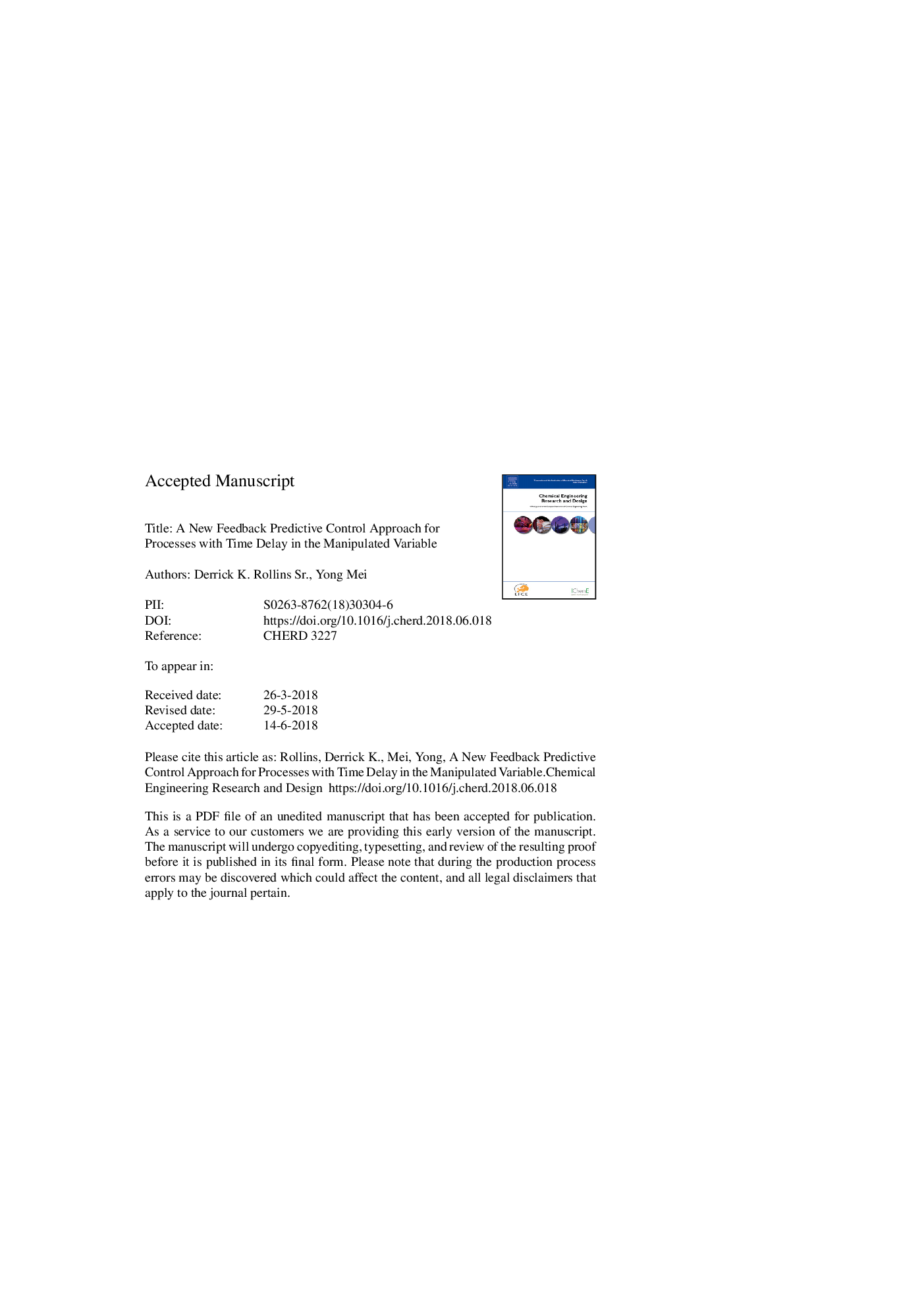| Article ID | Journal | Published Year | Pages | File Type |
|---|---|---|---|---|
| 7005602 | Chemical Engineering Research and Design | 2018 | 28 Pages |
Abstract
The scope of this work is time delay (θ) in the manipulated variable (MV) and not in the controlled variable (CV), addressed by approaches such as the Smith Predictor. The classical algorithm for dead time in MV is model predictive control (MPC). The MPC control law is for the future predicted value of CV to be at the set point an integer value of sampling time steps (J) beyond θ time in the future. Hence, the effectiveness of MPC depends strongly on the accuracy of the future prediction of CV, which decreases as J increases. In addition, the larger the time lag for MV, the longer it takes to reach the set point and the greater J will be also. Therefore, to overcome these limitations, this work presents a new FBC predictive control approach that has a control law that uses a future prediction of CV a distance θ into the future. Thus, it prediction horizon is minimal and it is not affected by the MV time lag. This approach is compared with MPC in two studies. The first one uses a mathematical transfer function model and the second study uses a mathematically simulated CSTR.
Keywords
Related Topics
Physical Sciences and Engineering
Chemical Engineering
Filtration and Separation
Authors
Derrick K. Sr., Yong Mei,
